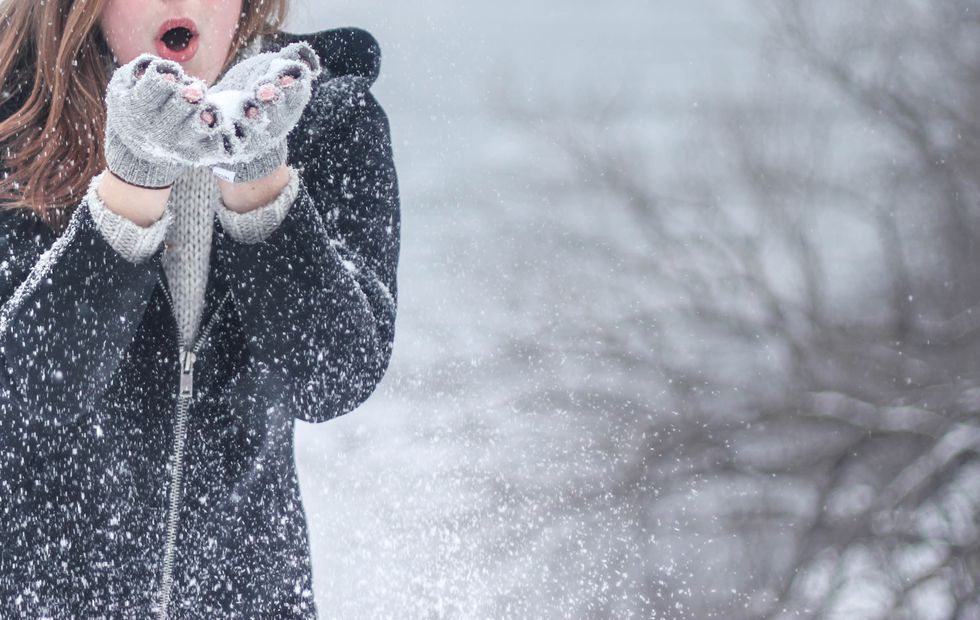If you’re like me-- when the cold rolls around each year-- you find yourself rooted in bed, unwilling to move. I find myself unmotivated to work, to exercise or to do any of the things I love. Normally, I blame it on being “sick” because there didn’t seem to be any real explanation otherwise for the “one-eighty” change in mood and behavior. “I’m just not a winter person”, I would explain, fully convinced by this explanation myself.
According to Mayo Clinic, over three million Americans know the feeling exactly. These three million suffer from Seasonal affective disorder and the majority brush it off as the “winter blues” each year.
You may be asking why it only hits in the winter-- I asked the same question.
In the summer, the days are long and sunny and most spend them enjoying the warmth. That same person climbs into bed exhausted and excited to hit the pillow for a good night's rest, waking up in the morning refreshed (probably more refreshed than any winter morning).
This is because during a twenty-four hour day, we, as people, go through one whole circadian cycle. This cycle is meant to last approximately twenty four hours. The circadian cycle is one of many biological clocks that make up a human’s physiological function. This one in particular is responsible for our sleep-wake routine. The circadian cycle is better equipped to handle a long day (with a short night) than it would be to handle a long night (with a short day).
Take jetlag for example-- I write this sitting on a plane awaiting jetlag myself. Jetlag happens partly, of course, because of the time difference between different zones. But on the other hand, the circadian cycle plays a huge role in the constant “sleepiness” that you just can’t seem to shake during your travels. This is because darkness prepares our body for rest, whether we slept the entire nine hour plane ride or very little at all.
All the same, you can wake up at 1:00 PM on a cold mid-December day and have approximately four hours of sunlight. This gives you approximately four hours of full energy, and by sun down your body is ready for sleep again. It can happen only once throughout the winter and you’re out of luck until the summer rolls back around.
This remains true until you learn how to beat it. There are a few fool-proof ways to get around the Seasonal affective disorder. As a matter of fact, there is great reason to believe that these same tactics could prevent jet lag and all circadian cycle “malfunctions”, as we’ll call them. One is to keep yourself on a routine, regardless of how argumentative your sleepy body becomes. Wake up at the same time, go to bed at the same time whether it is light as day or the sun has set. A great way to avoid the struggle of falling asleep in daylight or waking up at dusk are blackout blinds and/or curtains.
Not only do you consciously have an easier time ignoring the outdoors, but your internal clocks will thank you for being ever so kind.
Naps are the enemy. Remember that and hear me loudly. Twenty to thirty minute naps mid-day will be enough to replenish you but anything longer than that time frame ultimately is harming that night’s rest. The same goes for caffeine. Lowering your caffeine intake and cutting caffeine out completely after lunchtime is the best way to get a guaranteed better night sleep.
For those looking to reset your internal clocks completely, camping is a great way to get back to nature. Without technology and light pollution, your body has no excuse but to perform at its best. Another great way to give your rythms another chance is to manipulate light exposure. You can do so by exposing yourself to bright lights in the morning time of whatever time zone you reside in and doing so throughout the day. Towards the evening, gradually dim the lights and expose yourself to less and less light exposure. When getting ready to fall asleep for the night, expose yourself to no light at all, preparing your body for its sleep cycle.
Now that you possibly have an answer other than just “not being a winter person”, hopefully these tips and bits of information can be incredibly helpful in combating Seasonal affective disorder in an attempt to cure your “winter blues”.







































